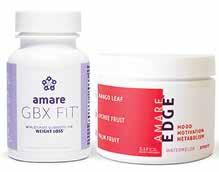
5 minute read
natural pet
Pest Control
Keeping Dogs Safe from Ticks and Fleas
by Karen Shaw Becker
Fleas and ticks are different types of pests; so, when considering how best to protect a dog, it is important to make a distinction—fleas are an annoyance, but ticks can be life-threatening. Many veterinarians recommend specific chemicals as a preventive solution, but this is often just a knee-jerk approach that uses chemicals to control nature. Instead, consider more natural alternatives that are both effective and non-toxic.
Fleas 101. Fleas are related to ants and beetles, feed on blood, and their bites can lead to irritation and skin allergies. They aren’t typically attracted to healthy pets; so, one of the best defenses against flea infestations is to feed a dog a nutritionally balanced, species-appropriate, fresh-food diet that will help keep their immune system functioning optimally. It is also important to remove the environmental factors that can negatively impact immunity, including: n Poor water quality. Make sure to provide fluoride- and chlorine-free drinking water. n Too many vaccines. Insist that the veterinarian runs titer tests instead of giving unnecessary shots.
$10 OFF
your first order with code 68754
Weight-Loss with an EDGE!
MOOD MOTIVATION METABOLISM

Why You Need It!
•Weight loss support •Improves gut health •Reduces bloating & inflammation •Regulates appetite & cravings •Boosts motivation & improves mood •Progressive anti-aging benefits
What It Is!
•Amare GBX FIT: The world’s first QUADbiotic gut-brain axis product for weight loss •Combination of a specific prebiotic, probiotic, phytobiotic, and postbiotic targeted for weight loss in a cool and convenient purple pill •Amare EDGE: Mango Fruit (motivation), Lychee Fruit (metabolism), and Palm Fruit (mood) in a delicious sugar-free and caffeine-free drink •Sustainably sourced ingredients We are a Holistic Mental Wellness Company. GET YOUR EDGE TODAY! Call 734-344-2339 NOW!

n Pesticides, herbicides and fertilizers used in the yard. n Toxic levels of electromagnetic fields from electrical devices in the home.
The Trouble with Ticks. Ticks are
a type of arachnid related to mites, spiders and scorpions. Because ticks feed on many different animals (including humans, dogs, cats, squirrels, mice, opossums and deer), they are quite good at acquiring and transmitting diseases, some of which can be life-threatening.
Unfortunately, a single tick bite can expose a dog to multiple pathogens, including Lyme disease, Rocky Mountain spotted fever and babesiosis. Luckily, most dogs mount an effective immune response. Up to 90 percent of dogs may have been exposed to tick-borne pathogens, but most are able to fight off infection on their own.
The only way to know if a dog has effectively eliminated harmful bacteria is to follow up the typical blood test with a second test called a quantitative C6 that differentiates exposure from infection. Large numbers of dogs each year are unnecessarily treated with extensive antibiotic therapy because their veterinarians panic after seeing a positive exposure and fail to check for infection.
To catch tick-borne infections before they take hold, ask the veterinarian to replace the standard annual heartworm test with the SNAP 4Dx Plus (from Idexx Labs) or the Accuplex4 tests (Antech Diagnostics), which screen for heartworm, Lyme disease and four other vector-borne diseases. Completing one of these simple blood tests every six to 12 months is the best way to protect a dog. In tick-infested areas, if a dog tests positive on either of those two tests, it should also be screened for babesia exposure with a polymerase chain reaction test.
Before Reaching for a Chemical.
Pet parents should not automatically apply potentially toxic chemical agents to their dogs or around their home to repel or kill pests. The use of spot-on products may cause skin irritation, paralysis, seizures and even death, if used improperly, and there are effective, natural alternatives that are far safer. If these chemicals are used, follow these precautions: n Be very careful to follow dosing directions on the label. If a pet is at the low end of a dosage range, use the next lowest dosage.
Monitor the pet carefully afterwards for adverse reactions. Do not under any circumstances apply dog product to a cat. n Every other month, rotate chemicals with natural preventives, including diatomaceous earth, pet-friendly, essential oil products and natural deterrent collars.
In many parts of the country, people can successfully control ticks with one chemical dose in the spring and one in late summer. n To detox a dog’s liver afterwards, give them a supplement such as milk thistle, a detox agent that helps to regenerate liver cells, or chlorella, a super green food. Work with an integrative veterinarian to determine the dosage; one dose daily for seven days following any chemical flea-, tick- or heartworm-preventive application is recommended.
Safe Options to Chemicals.
There are safe, non-toxic alternatives for flea and tick control for dogs, and they do not have side effects, unlike virtually all forms of chemical pesticides. These include: n Cedar oil, specifically manufactured for pet health n Natural, food-grade diatomaceous earth, applied topically n A fresh-food diet that is nutritionally optimal and species-appropriate
It is important to bathe and brush a dog regularly and perform frequent full-body inspections using a flea and tick comb to check for parasite activity. If they spend a lot of time outdoors, be sure to check pets and people for ticks every night during tick season.
Veterinarian Karen Shaw Becker has spent her career empowering animal guardians to make knowledgeable decisions to extend the life and well-being of their animals. Visit DrKarenBecker.com.

Fostering connections between animals, people, and the Earth.
Mother Bear Sanctuary’s Mission is to remind people of their innate connections to their bodies, the Earth, all animals, and each other and to inspire joy and service to a new paradigm of sustainable living that allows all people and animals to thrive. Learn more at MotherBearSanctuary.com
UPCOMING CAN’T-MISS EVENTS! April 9th, 10am-12pm Trauma sensitive Yoga and Qi-Cong near horses in a beautiful barn studio. $20-33 donation scale. April 23rd, 10am-5pm Coming Home To Yourself – Cultivating Your Ecological Self— Yoga in Barn, Qigong, Ecopsychology practices, and Empathic Nature Communication. $155-$222 donation scale. Call 734-796-6690 for more info!










